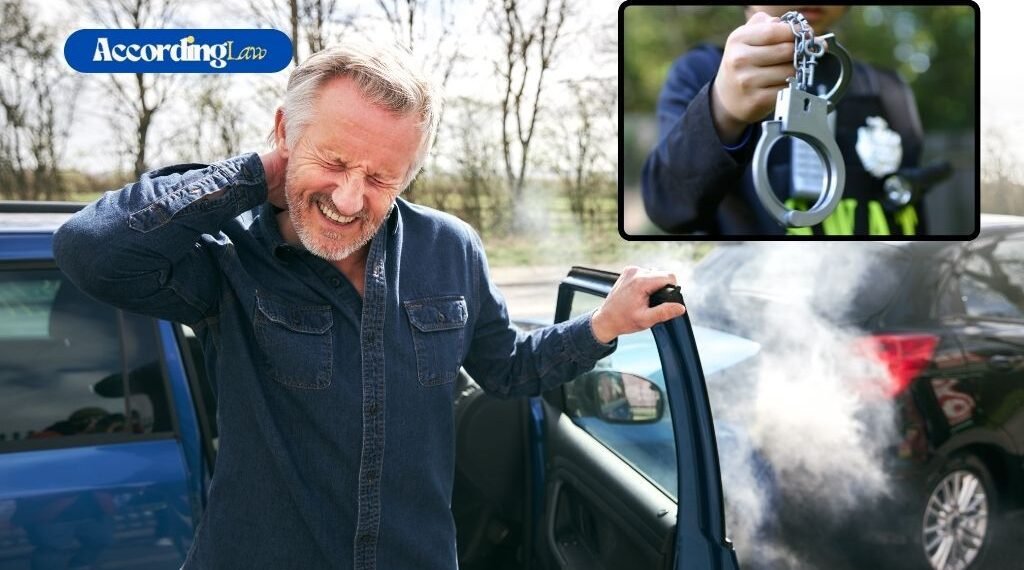The scenarios could not be more different. One moment, it’s the jarring screech of tires and the sickening crunch of metal; the next, it’s the cold, firm click of handcuffs and the reading of rights that suddenly feel all too real. In these disparate moments of crisis, one born of a sudden, violent collision, the other of an accusation and loss of freedom, a person is plunged into a world of shock and confusion. This is the moment when the need for guidance from experienced Crown Point attorneys becomes glaringly apparent, as the path forward is shrouded in uncertainty.
Whether staring at the wreckage of a car or the stark walls of a police station, the individual feels a profound loss of control. The life they knew just seconds before has been fractured, replaced by a storm of questions, fears, and a paralyzing sense of vulnerability. It is from this shared ground of chaos that a single, urgent legal need arises, one that will fundamentally shape everything that follows. The decisions made in these initial hours are not just procedural; they are foundational to securing one’s future.
Table of Contents
Critical First Hours: A Race Against Time
For both the injured driver and the newly arrested individual, the clock begins an unforgiving countdown. The most urgent shared need is for immediate, decisive action to preserve what can be easily lost: evidence and rights. In the aftermath of a crash, the scene is temporary. Skid marks fade, debris is cleared, and the memories of witnesses begin to blur and warp with each passing hour. A vehicle, crucial evidence in itself, can be moved or repaired, erasing vital information forever.
For the person in custody, the stakes are just as high. The right to remain silent is a powerful shield, but it is one that can be unknowingly lowered during a persuasive interrogation. Every word spoken without counsel present can become a permanent part of the record, used to build a case against them. In both situations, the initial window of opportunity is fleeting. Early mistakes, born from stress and inexperience, can cause irreparable damage to a future claim for compensation or a robust legal defense, making swift intervention not just helpful, but essential.
Navigating Adversarial Systems
Once the initial shock subsides, both the driver and the defendant find themselves confronting a formidable opponent. They are thrust into complex, adversarial systems where they are at a significant disadvantage. The injured victim is not dealing with a helpful partner but with an insurance adjuster, a professional trained specifically to protect the company’s financial interests by minimizing payouts. This individual uses a friendly demeanor to mask a strategic approach, often seeking recorded statements to lock in a narrative or offering a quick, low settlement before the true extent of the injuries is known.
On the other side, the arrested person faces the full might of the state. The prosecutor’s office has a singular goal: to secure a conviction. It wields vast resources, including police departments and investigators, to build its case. In this context, experienced legal advocates are essential. Capable Merrillville car crash advocates, for example, understand the insurance playbook and can immediately step in to manage all communication, preventing clients from falling into common traps set by adjusters. They level a playing field that is intentionally tilted against the unrepresented.
Restoring Control and Reducing the Human Cost
Beyond the tactical maneuvers of law, there is a profound human cost. A legal crisis triggers immense stress, anxiety, and a feeling of being completely overwhelmed by a process that is both foreign and intimidating. This is where the attorney’s role as a trusted advisor becomes indispensable. Their most immediate function is to shoulder the administrative and procedural burdens that can paralyze a client. They handle the incessant phone calls from adjusters, manage the mountain of paperwork, and ensure every critical deadline is met. This intervention acts as a shield, protecting the client from the daily pressures of the legal battle.
The attorney’s tasks include:
By taking on this responsibility, the lawyer restores a crucial sense of agency and control. It allows the injured driver to focus entirely on their physical and emotional recovery, and it gives the accused individual the mental space to manage the personal and professional fallout of an arrest. This guidance transforms a chaotic ordeal into a manageable process, providing clarity and reassurance when they are needed most.
Conclusion
Though one journey begins with the shattering of glass and the other with the loss of liberty, both place an ordinary person at a critical crossroads. They find themselves in a position of profound vulnerability, facing off against methodical systems, either a profit-driven insurance industry or the vast machinery of the criminal justice system, that are not designed with their best interests in mind.
In these moments, the shared, urgent need for immediate and skilled legal representation emerges as the single most important factor in leveling the playing field. Seeking this counsel is not an admission of guilt or a sign of contentiousness; it is a declaration of self-preservation. It is the one action that can halt the erosion of rights and prevent a moment of crisis from dictating the course of a lifetime.
Ultimately, the decision to engage a professional advocate, such as one of the dedicated criminal defense lawyers, is the first step away from being a victim of circumstance and toward becoming the architect of one’s own outcome, ensuring that the future is defined not by the incident but by the thoughtful response to it.


